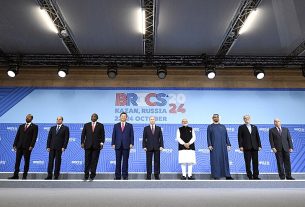Mon 26 Dec 2022 | 01:07 AM
As the United States is trying to remedy the delay in its active presence in the African continent, which constitute 15% of the world’s population, trying to stop the Chinese and Russian expansion into this continent, last week, the world saw the launch of US-Africa summit in Washington, in which 50 African leaders participated.
In his speech US President Joe Biden confirmed that he supports granting the African Union permanent membership in the G20 and revealed that he intends to visit countries in sub-Saharan Africa, which will be the first for a US president since 2015.
Biden also announced the allocation of $55 billion in investments in projects on the continent over the next three years, including investments in green energy, training health workers, and modernising internet networks. The private sector also pledged $15 billion in investments, particularly in the digital technology sector.
It is no secret that the growing Chinese and Russian influence in African countries raises the fears of the United States of the consequences of the expansion of the two rival countries in this region, especially since, according to forecasts, that the continent will be home to a quarter of the world’s population by 2050; and by 2075, the number will rise to a third.
The Summit comes as a belated recognition of this fact that much of the history of this century will be written in Africa.
The United States understands, more than any other international scene, the repercussions of Russia’s growing presence in the continent. It also understands the repercussions of China’s establishment of new Silk Roads; which is a major policy of the state.
The Chinese president has succeeded in convincing many countries of the world, including African countries, of the modern version of this economic and trade route.
The Chinese giant is changing the global economic map at all levels, from global governance to trade rules, respecting the environment and investment climate, by employing heavy investments all over the world.
China does not interfere in the political affairs of African countries, nor does it proceed from the principle that it carries a message of advocacy or values. It remains hostage to its financial, economic and strategic interests, and tells its partners that it is a “win-win” situation. This is what many European partners of Africa and even the United States do not understand.
At the US-Africa summit, the US was keen to emphasize the importance of democracy, and the US president told African leaders that “the United States will always be led by its values. the support of democracy, respect for the rule of law, commitment to human rights, and responsible governance.”
Finally, the US president invited to the summit leaders, some of whom are seen as authoritarian, meaning that the United States is trying to compensate for the delay in its presence on the continent, contrary to its principles.
Contributed by: Taarek Refaat



